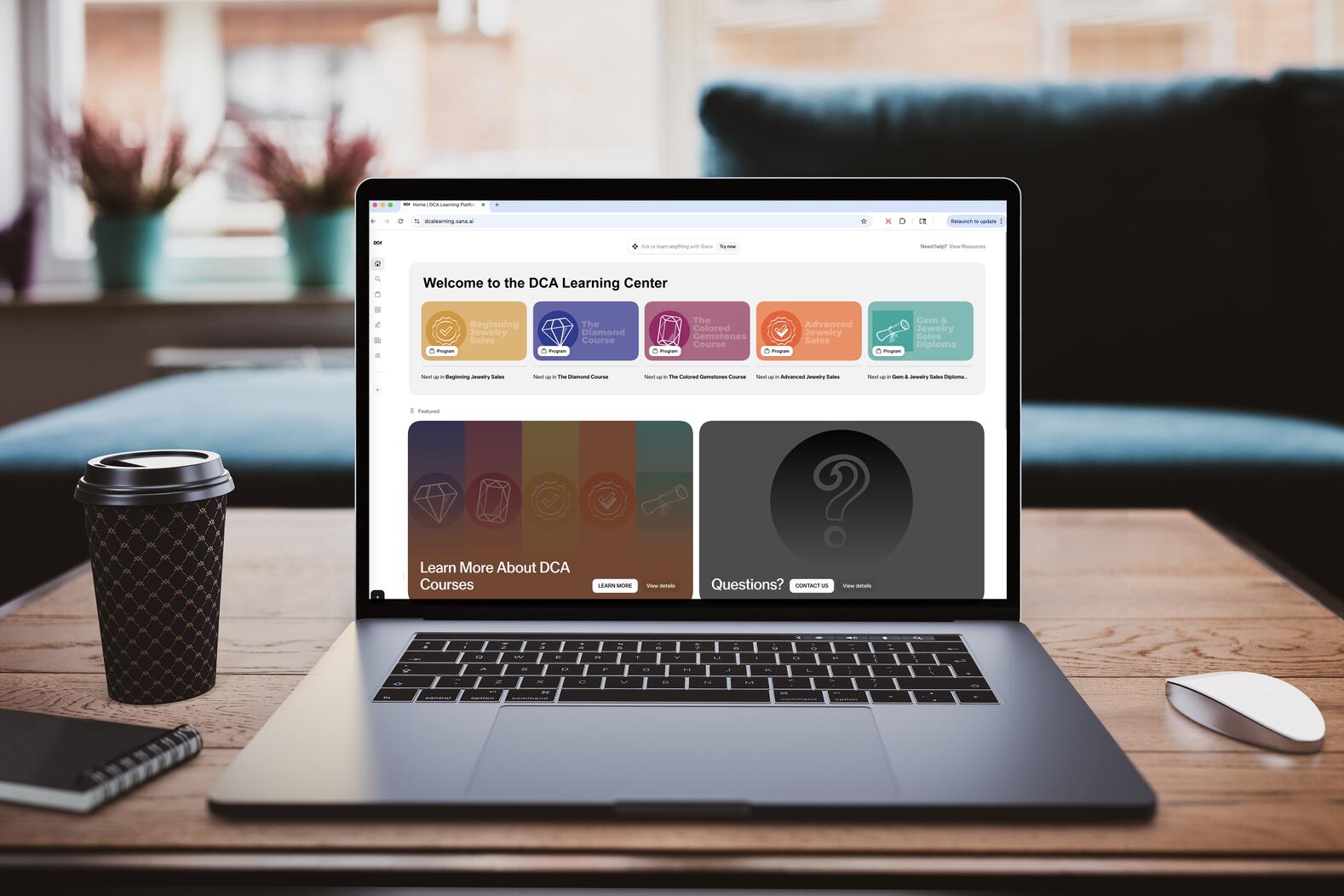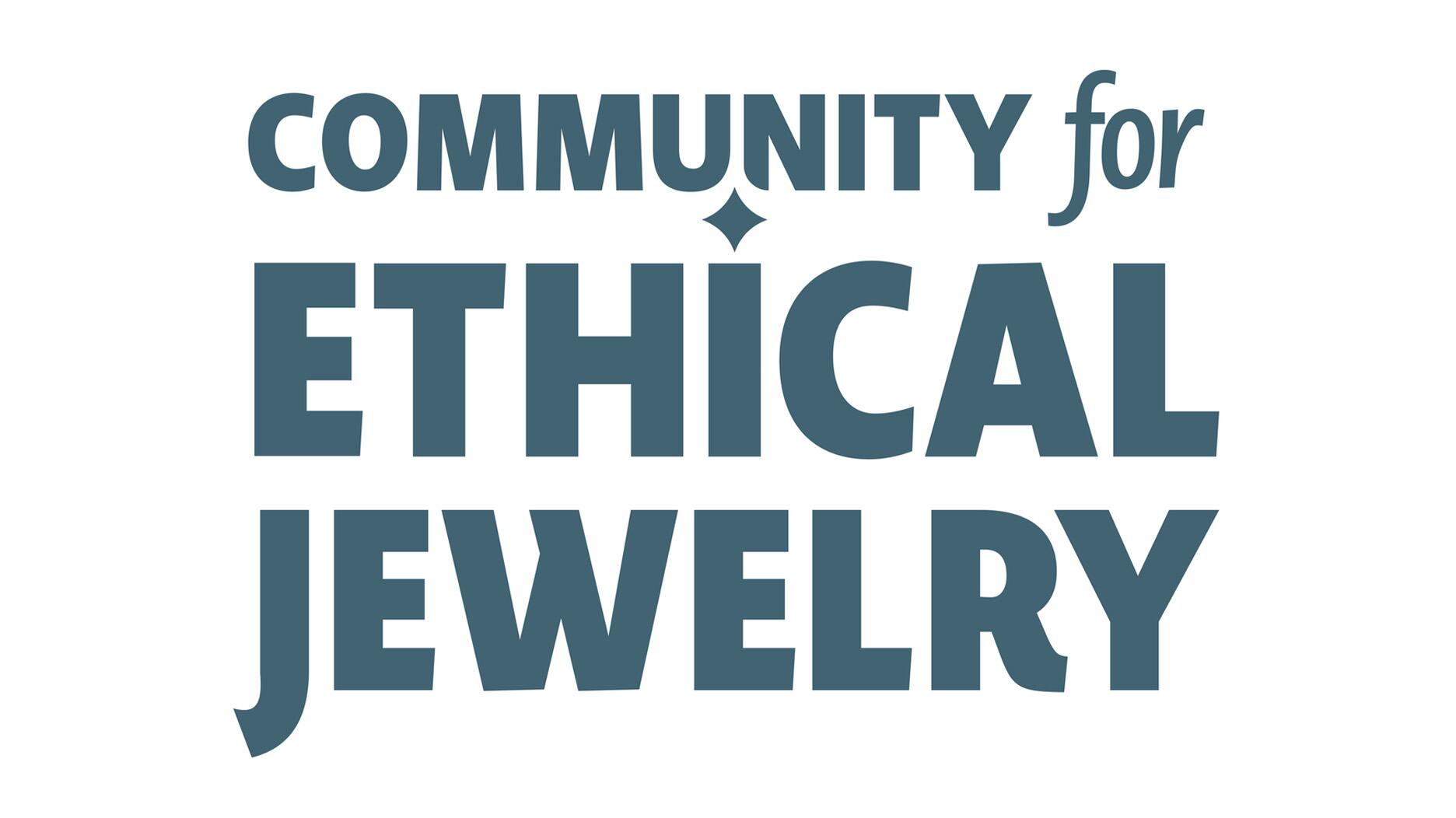5 Things to Know About Signet’s Sustainability Goals
From inclusivity in the workplace to climate change, these are the issues the jewelry giant is prioritizing.

The jewelry giant said it will focus on charity work, inclusion, climate change, and other people-focused initiatives.
“Our 2030 Corporate Sustainability Goals provide a roadmap for the next decade of our journey as a company,” CEO Virginia C. Drosos said in a press statement.
“From prioritizing our team in creating a rewarding and welcoming culture to protecting human rights throughout our supply chain and innovating in ways such as embracing the circular economy and continually reducing carbon emissions, we’re committed to operating in ways that create positive change for our planet and people.”
Signet has a list of 44 goals, organized into a “three loves” framework: love for all people, love for its team, and love for its planet and products.
Here are some of the highlights of its plan.
Signet wants to advocate for social change.
As beauty ideals shift away from traditional perfection to more inclusive realness, Signet wants its ads to reflect that.
The company is pledging to create inclusive marketing campaigns, representing a diverse array of shapes, sizes, ethnicities, and abilities. Signet said it will partner with St. Jude Children’s Research Hospital to feature patients and their families.
And, as society continues to parse through important conversations about social change, the company said it wants to be a part of the discussion in places where its voice can be helpful.
The company is leaning into its philanthropic side as quarterly sales continue to surge, and it is encouraging its employees to do the same. Signet’s Love Inspires Foundation will encourage team members to focus on social causes that are important to the communities where they live and work.
It aims to align the charity’s grant-making policy with the U.N.’s Sustainable Development Goals.
Signet wants to promote a more inclusive work environment.
The jewelry company has set several goals related to a more inclusive workplace.
It aims to interview diverse candidates for manager-level positions and above.
For the next four years, Signet plans to continue requiring its team members to take courses on inclusion and equity.
Employees in the director level and above will be required to complete a “Traits of Inclusive Leaders” course by 2025.
If all goes to plan, the management team is expected to better reflect its customer base and communities by 2025, the jeweler said.
In addition, by 2030, Signet expects to increase diversity in its leadership positions at the level of director and above by 25 percent, and increase the representation of BIPOC in leadership roles at this level in support centers by 20 percent.
It plans to earmark contributions for historically Black colleges and universities and Hispanic-serving academic institutions, setting up scholarships and academic partnerships as a way to increase diversity in its pool of interns and direct hires.
The retailer set a goal of becoming an “Employer of Choice” for LGBTQ+ communities and be recognized by the Human Rights Campaign Corporate Equality Index.
Signet also is increasing its base wage in the United States to $15 per hour by the spring of 2022, an intention it announced earlier this year.
Signet wants to carry that inclusivity over to the design studio.
The retailer also has set goals to promote inclusivity in the design process.
One goal is to increase the total spend on indirect diverse suppliers to $250 million.
It also plans to up its merchandise spend to global direct suppliers with programs that pay living wages to women.
The company wants to foster talent in the diamond jewelry sector, particularly for BIPOC designers, offering scholarships, mentorships, business development, and more.
It plans to add five BIPOC-owned companies and brands to its vendor list.
Signet will also give support to five new female entrepreneurs in the jewelry industry.
Looking at its supply chain, the company hopes to increase “access to career opportunities and upward mobility for women employed by our key suppliers.”
Signet wants to do its part to promote human rights via supply chain management.
The company said it will source “conflict-free” rough diamonds from high-risk areas, like Central Africa, by working with artisanal and small-scale miners, aligned with the guidance provided by the Organisation for Economic Co-operation and Development.
In a push for traceability, it will disclose diamond origin by company and share information with customers about the economic impact for those diamonds traceable through De Beers Group, Alrosa and other major rough diamond sources.
The company also plans to provide skills and opportunities to the diamond cutting and polishing areas of Botswana.
In addition to its sustainability goals report, Signet filed its eighth consecutive Form Specialized Disclosure and Conflict Minerals Report with the U.S. Securities and Exchange Commission, alongside an independent private sector audit report.
Signet’s report, backed up by the accompanying audit, states it has obtained its gold, tin, tantalum, and tungsten from conflict-free sources in the Democratic Republic of the Congo.
Looking to its suppliers, all of Signet’s “strategic indirect suppliers” have signed the company’s Supplier Code of Conduct or have a similar one in place, the company said, and have been audited for compliance.
Its direct and indirect suppliers are also increasing career opportunities and upward mobility for women.
Signet said all of its direct suppliers offer safe and healthy workplaces for its employees, and all key suppliers are expected to be certified members of the Responsible Jewelry Council by 2025.
Signet wants to address climate change.
As heat waves ripple across the country, climate change continues to be an issue large companies are looking to address.
Signet has set the goal of achieving net-zero greenhouse gas emissions by 2050, partnering with transportation suppliers to meet that goal.
The company also wants to make its packaging more eco-friendly, offering customers sustainable packaging options in stores and online.
It aims to use at least 50 percent recycled content for pulp and paper-based packaging and 30 percent recycled content in plastic-based packaging.
In addition, Signet’s supply chain will make use of corrugated boxes consisting of no less than 60 percent recycled material.
As for water usage, it will implement reduction policies in all of its factories and facilities that operate in “water-stressed areas.”
The company also wants to join the U.N. Global Compact CEO Water Mandate and pledge by 2050 to have a net-positive water impact in these water-stressed areas.
In addition to the initiatives outlined above, Signet also set goals to provide professional development training for its retail employees, improve employee retention in its field and support centers, and more.
“I couldn’t be prouder to embrace this direction—a true north that our customers, employees and investors want—and be the change we want to see in the world,” said Drosos.
The Latest

Smith encourages salespeople to ask customers questions that elicit the release of oxytocin, the brain’s “feel-good” chemical.
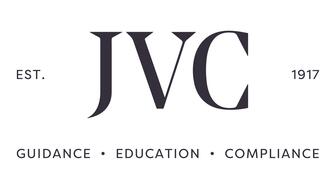
JVC also announced the election of five new board members.

The brooch, our Piece of the Week, shows the chromatic spectrum through a holographic coating on rock crystal.
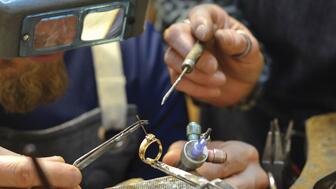
Launched in 2023, the program will help the passing of knowledge between generations and alleviate the shortage of bench jewelers.

Raised in an orphanage, Bailey was 18 when she met her husband, Clyde. They opened their North Carolina jewelry store in 1948.


Material Good is celebrating its 10th anniversary as it opens its new store in the Back Bay neighborhood of Boston.
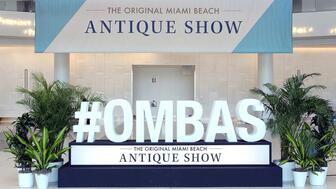
The show will be held March 26-30 at the Miami Beach Convention Center.
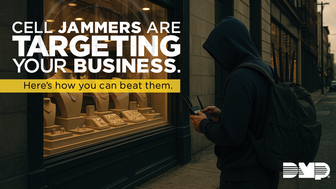
Criminals are using cell jammers to disable alarms, but new technology like JamAlert™ can stop them.

The estate of the model, philanthropist, and ex-wife of Johnny Carson has signed statement jewels up for sale at John Moran Auctioneers.

Are arm bands poised to make a comeback? Has red-carpet jewelry become boring? Find out on the second episode of the “My Next Question” podcast.
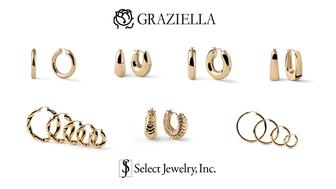
It will lead distribution in North America for Graziella Braccialini's new gold pieces, which it said are 50 percent lighter.
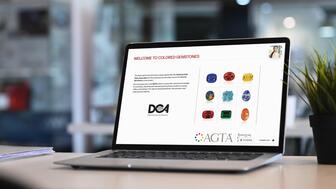
The nonprofit will present a live, two-hour introductory course on building confidence when selling colored gemstones.

Western wear continues to trend in the Year of the Fire Horse and along with it, horse and horseshoe motifs in jewelry.
![A peridot [left] and sapphires from Tanzania from Anza Gems, a wholesaler that partners with artisanal mining communities in East Africa Anza gems](https://uploads.nationaljeweler.com/uploads/cdd3962e9427ff45f69b31e06baf830d.jpg)
Although the market is robust, tariffs and precious metal prices are impacting the industry, Stuart Robertson and Brecken Branstrator said.

Rossman, who advised GIA for more than 50 years, is remembered for his passion and dedication to the field of gemology.

Guthrie, the mother of “Today” show host Savannah Guthrie, was abducted just as the Tucson gem shows were starting.

Butterfield Jewelers in Albuquerque, New Mexico, is preparing to close as members of the Butterfield family head into retirement.

Paul Morelli’s “Rosebud” necklace, our Piece of the Week, uses 18-karat rose, green, and white gold to turn the symbol of love into jewelry.

The nonprofit has welcomed four new grantees for 2026.

Parent company Saks Global is also closing nearly all Saks Off 5th locations, a Neiman Marcus store, and 14 personal styling suites.
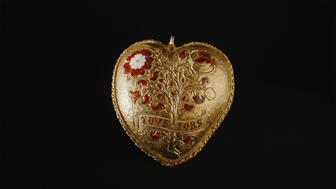
It is believed the 24-karat heart-shaped enameled pendant was made for an event marking the betrothal of Princess Mary in 1518.
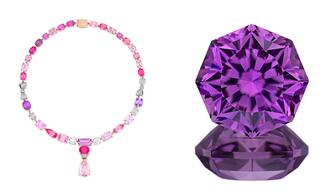
The AGTA Spectrum and Cutting Edge “Buyer’s Choice” award winners were announced at the Spectrum Awards Gala last week.
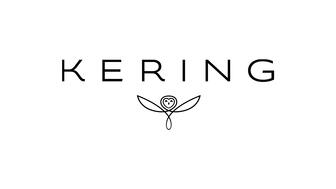
The “Kering Generation Award x Jewelry” returns for its second year with “Second Chance, First Choice” as its theme.

Sourced by For Future Reference Vintage, the yellow gold ring has a round center stone surrounded by step-cut sapphires.
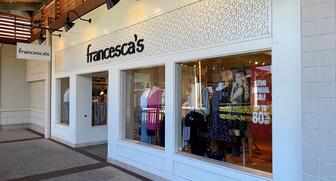
The clothing and accessories chain announced last month it would be closing all of its stores.

The “Zales x Sweethearts” collection features three mystery heart charms engraved with classic sayings seen on the Valentine’s Day candies.

The event will include panel discussions, hands-on demonstrations of new digital manufacturing tools, and a jewelry design contest.














